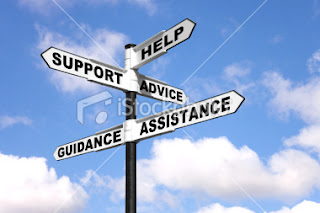A LEVEL PLAYING FIELD
A situation in which everyone has a fair and equal chance of succeeding.
Has anyone who has a disability or looks after a family member with a disability noticed how there are different rules for them than for everyone else?
When Miss Chloe's dad committed suicide a few years back, his superanuation group were not going to give her what was rightfully hers, because she was 18yo and I was not her legal guardian. I called the VCAT to inquire about the process. When it was described, I was mortified and disgusted...talk about degrading and humiliating! When I mentioned this to the lovely man from VCAT, his response was:
"Families of people with disabilities are GUILTY UNTIL PROVEN INNOCENT
Seems they are the only demorgaphic in Australia to have this honor!
Because SOME people rip off their loved one with a disability...
Some people in general society murder and rob others,but that doesn't change the premise of innocent till proven guilty for the rest!
Needless to say, I am still not her legal guardian!
Fast forward to recent times...NDIS times
Now this is an organisation that has successfully removed any semblence of fair play when it comes to the people they are supposed to be helping.
- They have changed the concept of 'Fair & Reasonable' from being about the participants needs to being about how fair & reasonable it is to the NDIA.
- No participant is allowed a copy of what is being submitted from the plan to the NDIA.
- No participant has the right to refuse their plan and be reinstated with their previous supports (they can appeal, which can take up to 6 months) but they still only have what NDIA has given them.
- They refuse to give the participants any information on how they arrived at a plan that is nothing like was talked about in the meeting, when the participant needs to appeal or have a review done.
- You never, ever get to speak to the same person twice and you never get the same information twice! The running joke around the ridges is: If you don't like the answer, just call again!
Frightening, considering the police have informed us:
ANYONE is entitled to do this, as long as they let everyone in the room know they are recording it. If the planner is uncomfortable, NDIA must supply another planner....
GROSSLY UNFAIR!!!!
Apparently, we are allowed to take notes, but it is very hard to scribe a 2.5 hour meeting and are the planners going to sign off on the notes so the participant has a record that they are true and correct?
Hummmm, we shall see..........
The time has come for participants to stand up against the inequality and demand we get given the same rights as everyone else.
The Federal Government needs to take some responsibility here and make the NDIA allow participants the right to have access to all the information they need when needing to submit a review or appeal.
A LEVEL PLAYING FIELD FOR ALL



































